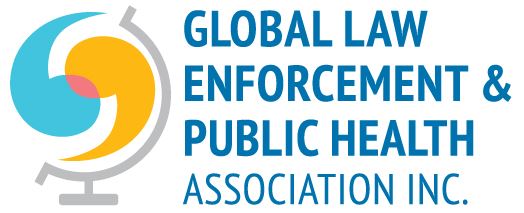The following information has been directly sourced from the World Congress on Public Health 2020 statement on "Public health for the future of humanity".
When a group of health professionals from China arrived at Malpensa Airport in northern Italy on 18th March to share their experience and learning in tackling Covid 19 and some essential medical supplies, they unfurled a banner “We are waves from the same sea, leaves from the same tree, flowers from the same garden”. Public health professionals around the world have been united working in solidarity for the common good and betterment of humankind, leading the scientific analysis and advise to decisionmakers, and on front lines in the field practically tackling the ongoing Covid 19 global public health emergency. People have gone to their balconies and front doors to applaud and convey their admiration and thanks for their work and other health professionals in these extraordinary times.
The 16th World Congress on Public Health is due to be held from 12 to 16 October 2020 as a fully online conference. The theme of the Congress “Public health for the future of humanity: analysis, advocacy and action” is even more relevant now than ever before.
The individual, community and institutions of society are key protagonists and chief stewards for health from whose values and interactions the future emerges. When the global pandemic was declared, the World Health Organization, in collaboration with the Global Research Collaboration for Infectious Disease Preparedness and Response (GLOPID-R), organised a Global Forum on research and innovation for Covid 19 (‘Global Research Forum’). The WHO-GLOPID-R Covid 19 Global Research and Innovation Forum highlighted some key values in addressing the global pandemic, namely solidarity, equity, trust, autonomy, equal moral respect, and vulnerability. Such ethical principles were not intended for abstract philosophical arm chair debate but have significant implications for policy, research and practice at this time. There has been “a cry for ethical global leadership” to consider and address health inequity and to use the learning and experience from the global Covid 19 pandemic to build a just, healthier, and peaceful world. Public health is the work, art and science of preventing disease, prolonging life and promoting health through the organised 2 efforts of society. At this time, there is urgent need to reconsider the organised efforts of society and role of individuals, communities and institutions which they serve.
What this global pandemic and other public health emergencies, such as climate change, clearly demonstrate is recognition of the interdependence and interconnectedness of all people in the world and their environments, and the need for unity, not only to overcome this common threat but also for building a healthy peaceful future for all humanity. Global cooperation and coordination during a pandemic outbreak can be considered both an epidemiological imperative and a moral duty, and the way we need to live and work together in the future. Such a world will need to address the scandalous social and economic inequities, which continue “to kill people on grand scale”1 and issues around race and gender which have direct impact on health and wellbeing.
There is urgent need to invest in public health and care services and work together as citizens of one planet to deliver the 2030 sustainable development goals, all of which have implications for our health and wellbeing. Following World War 2, there was emergence of significant international and national organisations, such as the United Nations, UNICEF, World Bank, World Health Organization and other agencies calling for greater international cooperation. The science, the evidence and experience from the Covid 19 global pandemic clearly highlight our interconnectedness and our environments, the oneness of humankind and the case for a One Health approach to global health, and urgent need for evaluation and strengthening of international organisations to serve all people on our planet. The public health community throughout the world is united and stands ready and eager to support policymakers, individuals and communities in our common endeavour to build a just healthier future for humankind and the whole planet.
October 2020
This is a statement by World Federation of Public Health Associations (WFPHA), European Public Health Association (EUPHA), Italian Society of Hygiene, Preventive Medicine and Public Health (SItI), and UK faculty of public health (FPH).
For further information please contact Farhang Tahzib (farhang.tahzib@gmail.com), UK FPH, or Dineke Zeegers Paget, EUPHA Executive Director (office@eupha.org).
This statement is available to be read in full here.
